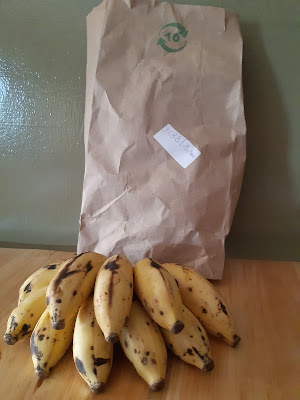Bags
I live in Rwanda now, but I used to live in Vietnam. Of course, Rwanda and Vietnam are totally different. But what perhaps strikes me most, are the plastic bags. Or rather, the absence of bags.
In recent
years, many countries have taken all kinds of measures to ban single-use bags,
just to reduce plastics and promote more sustainable bags. I remember how in
South Africa, the bags at the checkout were made sturdier and paid for in order
to reduce the amount of plastic in the litter. But even now, you see the
"flowers of Africa" everywhere: bags hanging in the barbed wire of
fences, flapping in the wind.
In Belgium,
too, people are trying to reduce the amount of plastic. The fruit and vegetable
departments of supermarkets have switched from the thin bags to reusable, cloth
or paper bags. But still, when visiting Belgium, it strikes me how much plastic
is still in circulation, how many fruit and vegetables are pre-packed in
plastic.
That is
less the case in Vietnam. Fruit and vegetables are not pre-packed. And yet, for
me, Vietnam is the king of plastic bags. Everything you buy is immediately put
into a bag by the sales person, preferably more than one because they are so
thin that they immediately tear. They come in all sizes. There are even special
bags with which you can hang a take-away coffee or juice (in a plastic cup with
a plastic straw, of course) on the handlebar of your scooter. Plastic, there is
plastic everywhere. The habit of just dropping litter doesn't really help. The
street sweepers fight an almost impossible battle. In the end, all that plastic
ends up in the sea. On a bad day, you are not harassed by jellyfish in the sea,
but by plastic bags. It is a nasty feeling, those slimy, dirty things sliding
along your body in the otherwise glorious seawater.
No, that is
something of the past here in Rwanda. Plastic bags are banned in Rwanda. It is
a measure with which Rwanda scores very high on the international ranking for
banning plastic. And so all your purchases are packed in paper bags. No
"Flowers of Africa" here. This also has to do with the responsibility
that each neighbourhood takes to clean up. In pre-COVID times, this was done on
the monthly "umuganda" day where everyone does community work. Kigali
is a very clean city.




Comments
Post a Comment